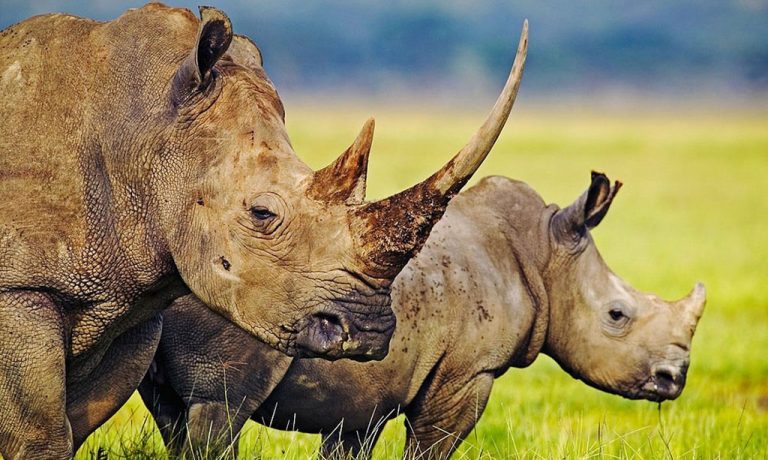There were 768 less counts of rhino poaching incidents in South Africa last year than the year before, making 2018 the third year in a row that poaching activity has been on the decline, in national parks in particular.
Reports from the Department of Environmental Affairs show that 25% fewer rhinos (259) were poached last year, compared to in 2017 (1,028). 2018 marked the first time in five years rhino poaching figures came in at under a thousand.

From 1 January to 31 December 2018, 365 alleged rhino poachers and 36 alleged horn traffickers were arrested internationally.
These new statistics are thanks to improved collaboration with law enforcement within conservation and environmental authorities.
The department credits law enforcement, conservation technology, South African citizens, and training and awareness campaigns, and is pursuing creating IPZs – Intensive Protection Zones – that will assess how to implement the best practice at national levels.
‘The decline is not only indicative of the successful implementation of the Integrated Strategic Management of Rhinoceros Approach countrywide, but also a confirmation of the commitment and dedication of the men and women working at the coalface to save the species,’ said Nomvula Mokonyane, the Environmental Affairs Minister.
The Integrated Strategic Management of Rhinoceros Approach was adopted by Cabinet in 2014 with the joint efforts of the Department of Environmental Affairs and the Justice, Crime Prevention and Security (JCPS) Cluster Departments and agencies.
This initiative is supported by SANParks among other South African governmental bodies.
Also read: Kruger’s SAWC dog squad wins conservation award
Featured image from World Wide Fund for Nature
You may also like
Related Posts
Jock Safari Lodge has formed an official long term partnership with the Wilderness Foundation Africa...
read more
All activities including hiking, mountain biking and picnics are temporarily suspended on Table Mountain due...
read more
Unlike carnivores that get their sodium from the meat they consume, herbivores have to seek...
read more